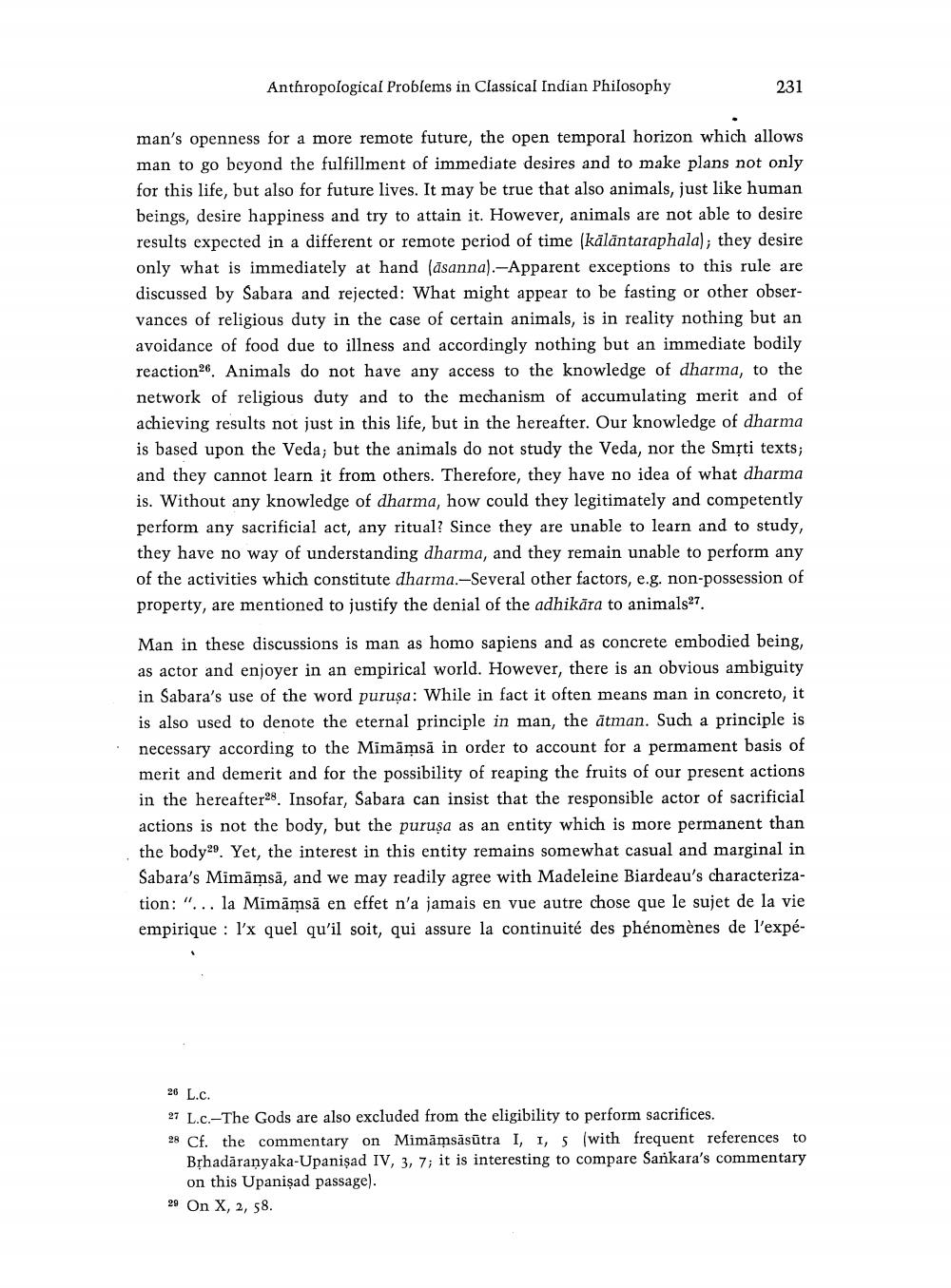Book Title: Anthropological Problems In Classical Indian Philosophy Author(s): Wilhelm Halbfass Publisher: Wilhelm Halbfass View full book textPage 7
________________ Anthropological Problems in Classical Indian Philosophy 231 man's openness for a more remote future, the open temporal horizon which allows man to go beyond the fulfillment of immediate desires and to make plans not only for this life, but also for future lives. It may be true that also animals, just like human beings, desire happiness and try to attain it. However, animals are not able to desire results expected in a different or remote period of time (käläntaraphala); they desire only what is immediately at hand (asanna).-Apparent exceptions to this rule are discussed by Sabara and rejected: What might appear to be fasting or other observances of religious duty in the case of certain animals, is in reality nothing but an avoidance of food due to illness and accordingly nothing but an immediate bodily reaction26. Animals do not have any access to the knowledge of dharma, to the network of religious duty and to the mechanism of accumulating merit and of achieving results not just in this life, but in the hereafter. Our knowledge of dharma is based upon the Veda, but the animals do not study the Veda, nor the Smrti texts; and they cannot learn it from others. Therefore, they have no idea of what dharma is. Without any knowledge of dharma, how could they legitimately and competently perform any sacrificial act, any ritual? Since they are unable to learn and to study, they have no way of understanding dharma, and they remain unable to perform any of the activities which constitute dharma.-Several other factors, e.g. non-possession of property, are mentioned to justify the denial of the adhikāra to animals27. Man in these discussions is man as homo sapiens and as concrete embodied being, as actor and enjoyer in an empirical world. However, there is an obvious ambiguity. in Sabara's use of the word purusa: While in fact it often means man in concreto, it is also used to denote the eternal principle in man, the atman. Such a principle is necessary according to the Mimamsă in order to account for a permament basis of merit and demerit and for the possibility of reaping the fruits of our present actions in the hereafter28. Insofar, Sabara can insist that the responsible actor of sacrificial actions is not the body, but the purusa as an entity which is more permanent than the body29. Yet, the interest in this entity remains somewhat casual and marginal in Sabara's Mimämsä, and we may readily agree with Madeleine Biardeau's characterization: "... la Mimämsä en effet n'a jamais en vue autre chose que le sujet de la vie empirique l'x quel qu'il soit, qui assure la continuité des phénomènes de l'expé 26 L.C. 27 L.c.-The Gods are also excluded from the eligibility to perform sacrifices. 28 Cf. the commentary on Mimämsäsūtra I, 1, 5 (with frequent references to Bṛhadaranyaka-Upanisad IV, 3, 7; it is interesting to compare Sankara's commentary on this Upanisad passage). 29 On X, 2, 58.Page Navigation
1 ... 5 6 7 8 9 10 11 12
